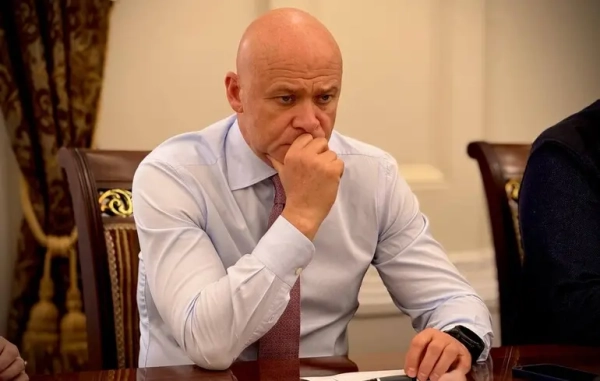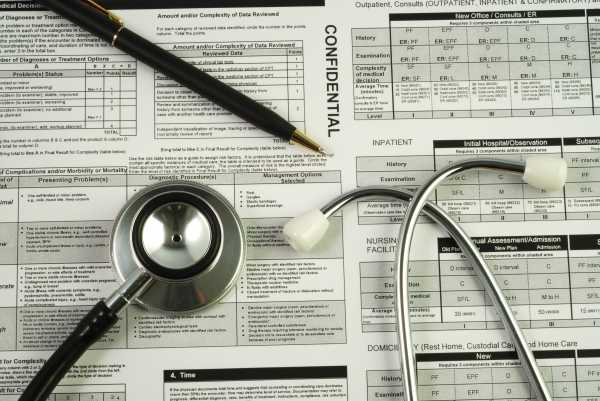
The number of uninsured Americans is rising again, according to the Census Bureau, an abrupt reversal of a trend of increased coverage since the Affordable Care Act became law.
In 2018, the number of people in the United States without health insurance rose to 27.5 million, up from 25.6 million in 2017. The uninsured rate jumped from 7.9 percent in 2017 to 8.5 percent in 2018. It was the first year-to-year increase in uninsured rates since 2008 and 2009.
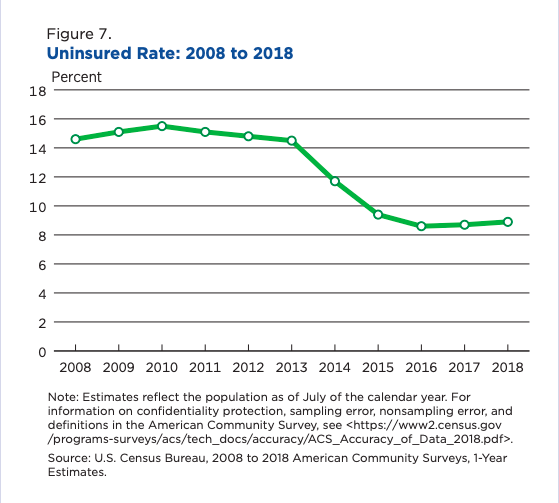
The increase in the number of uninsured is surprising because the US economy has been relatively strong and unemployment has remained low. But the Trump administration has taken numerous steps over the last few years to both hamstring the Obamacare marketplaces for private insurance and to roll back Medicaid enrollment.
The Census data revealed only marginal decreases in private insurance coverage, but Medicaid coverage dropped by 0.7 percentage points, a drop in enrollment of about 2 million people.
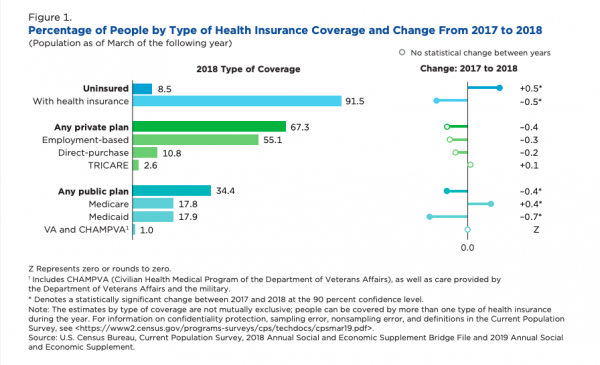
It’s hard to determine the exact cause for the decline in insurance coverage. President Trump and congressional Republicans repealed the ACA’s individual mandate, which ended the requirement that people purchase coverage or pay a penalty. That could have led some people to voluntarily drop their insurance. The administration has also sought to make skimpier “short-term insurance” plans more available and it has cut enrollment outreach for Obamacare enrollment.
For Medicaid, the administration has approved the first-ever work requirements, which was found in Arkansas to have led to some 20,000 people losing coverage. The courts have, however, put the requirements in Arkansas and other states on hold, arguing they are contrary to the program’s purpose. The administration has also notably sought to crack down on immigrants’ enrolling in Medicaid, by changing federal “public charge” rules so they penalize migrants for utilizing public assistance.
The Census report found persistently high uninsured rates among impoverished in states that have refused to expand Medicaid under the ACA. In those states, which have declined a generous federal match to cover their poorest citizens through the health care law, more than one-third of people in poverty lack health insurance.
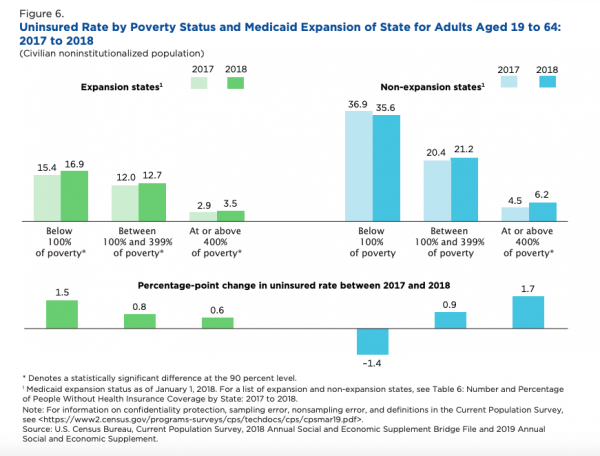
Racial disparities also persisted in insurance coverage in America: 5.4 percent of white non-Hispanic people were uninsured, while 9.7 percent of blacks and 17.8 percent of Hispanics lacked coverage.
Sourse: vox.com


